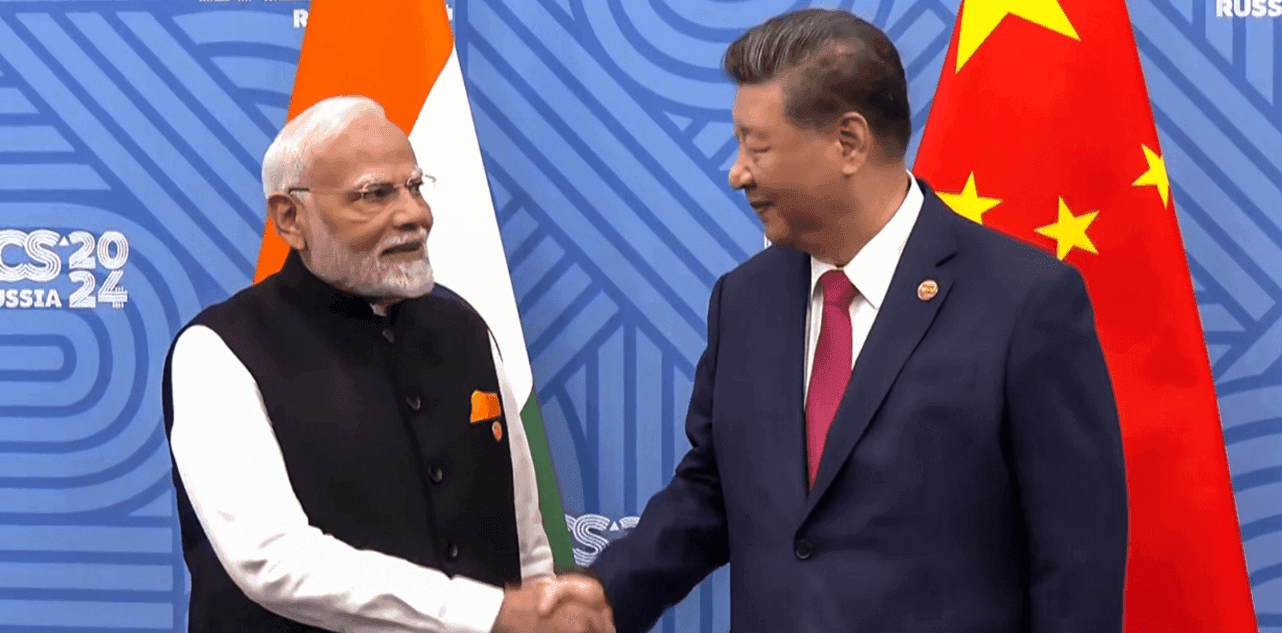Monday 16 February 2026
United Against Tariffs? China Seeks India’s Backing Amid Explosive Trade War with Trump-Led U.S.
Share

In a dramatic twist in global trade politics, China has openly called upon India to join forces in opposing what it calls the “abuse of tariffs”by the United States under former President Donald Trump’s administration. The appeal comes amid a renewed surge in tariff hikes by the U.S., raising concerns across the international economic landscape.
The Chinese proposal, made via its embassy in India, is being viewed not just as a strategic outreach but as a calculated geopolitical move as the trade war between the U.S. and China escalates with renewed fury.
At the center of this storm is the Trump administration’s imposition of a jaw-dropping 104% cumulative tariff on imports from China. This unprecedented move has rattled markets and drawn sharp criticism from Beijing, which has accused Washington of weaponizing trade policy for political gains.
Trump has doubled down on these tariffs, arguing they are necessary to curb unfair Chinese practices and restore American industrial might. “We’ve been taken advantage of for far too long,” he has claimed in past statements, while his administration pushes for increased domestic production and reduced dependence on foreign manufacturing.
Faced with rising economic pressure, China appears to be recalibrating its diplomatic toolkit. In a rare move, Chinese Embassy spokesperson Yu Jing publicly addressed India, highlighting the importance of cooperation between two of the world’s largest developing economies.
“The U.S. abuse of tariffs not only harms China but also challenges the development rights of countries in the Global South,” Yu said. “Facing this situation, the two largest developing countries should stand together to overcome the difficulties.”
Her remarks were not merely symbolic—they were a direct invitation for India to align more closely with China in challenging unilateral U.S. trade actions on the world stage.
India’s response, however, is likely to be far more nuanced. As a nation that has steadily deepened its trade and defense partnerships with the U.S. while remaining wary of China’s expansionist ambitions, New Delhi finds itself in a diplomatically sensitive position.
While Indian officials have not yet publicly responded to China’s appeal, the underlying message is clear: Beijing is attempting to forge a new coalition of developing economies to counterbalance American dominance in global trade.
The question is complicated by recent tensions between India and China over border disputes, tech bans, and regional influence. Any move toward closer economic cooperation must be weighed against strategic mistrust and the wider geopolitical chessboard.
Some analysts believe China’s appeal is less about genuine alliance-building and more about signaling—to the U.S., to domestic audiences, and to other developing nations. “This is classic diplomatic posturing,” one international affairs expert said. “It’s about shifting the narrative, casting the U.S. as the aggressor, and China as the leader of the developing world.”
But the potential implications of such a coalition are significant. If India were to even partially align with China on trade policy at global forums like the WTO, it could reshape international debates on tariffs, subsidies, and fair trade.
The ripple effects of the U.S.-China trade war—and China’s counter-moves—are being felt across the globe. Investors are bracing for further disruptions to supply chains, inflationary pressures, and currency fluctuations.
Emerging markets, in particular, are watching closely. For them, the stakes are not just political but economic: a prolonged trade war could destabilize growth prospects and derail post-pandemic recovery plans.
For now, India’s next move remains shrouded in silence. Will it echo China’s call for multilateralism and fair trade? Or will it continue to tread the tightrope between its two powerful global partners?
One thing is certain—the pressure is mounting. As the U.S. and China dig into their economic trenches, nations like India will find themselves courted, coaxed, and perhaps even cornered into taking a stand.
Newsletter
Stay up to date with all the latest News that affects you in politics, finance and more.